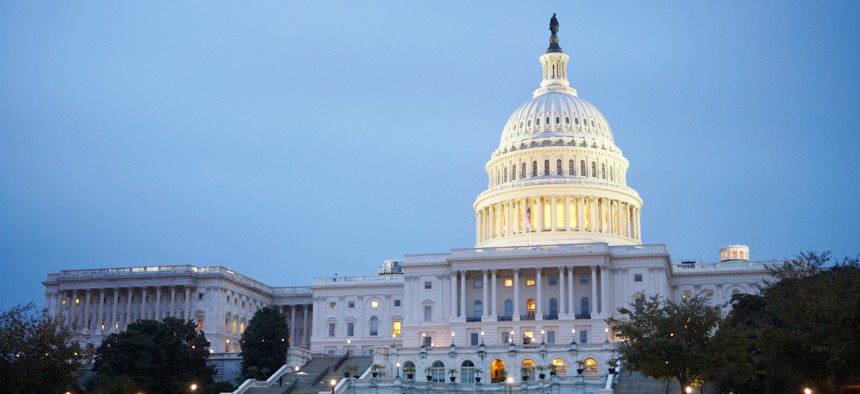
The measure would require more thorough recordkeeping for congressional staff to ensure the employees are not vulnerable to various types of retaliation. Siri Stafford/Getty Images
Lawmaker Pushes for Legislative Branch Employees to Have the Same Rights as Other Feds
Congress should hold itself to the same employer standards as the rest of government, House member says.
Congressional staff on Capitol Hill could soon have many of the same rights as federal employees in the executive branch under a new bill that would institute whistleblower and other protections.
The 2022 Congress Leads by Example Act (H.R. 8743) would provide general whistleblower protections and anti-retaliation measures that federal workers enjoy, but have to date excluded those in the legislative branch. It would also give congressional workers more power to fight against retaliation for their disclosures to the Occupational Safety and Health Administration.
“Congress must abide by the laws it imposes on the American people and workplaces,” said Del. Eleanor Holmes Norton, D-D.C., who introduced the measure this week. “My bill builds on the protections in previous laws, bringing the protections for legislative branch employees in line with those for other workers.”
The measure would require more thorough recordkeeping for congressional staff to ensure the employees are not vulnerable to various types of retaliation. Congressional offices would be prohibited from retaliating against employees if their wages are being garnished or if they are involved in bankruptcy proceedings.
Norton said her bill “seeks both to apply the standard of fairness to employees of the legislative branch that Congress requires for other employees and provide a safer work environment for the legislative branch and visitors by bringing the legislative obligations in line with the legal requirements of the private sector and the executive branch.”
Federal employees generally enjoy extensive protections against whistleblower reprisal and can take their claims to the Office of Special Counsel as well as the Merit Systems Protection Board.
Many legislative branch employees are currently pushing for better working conditions through unionization efforts after the House earlier this year approved a resolution to allow its more than 9,000 staffers to vote to form such an organization. Several offices have already submitted paperwork to start that process, which is now pending review before the Office of Congressional Workplace Rights.







